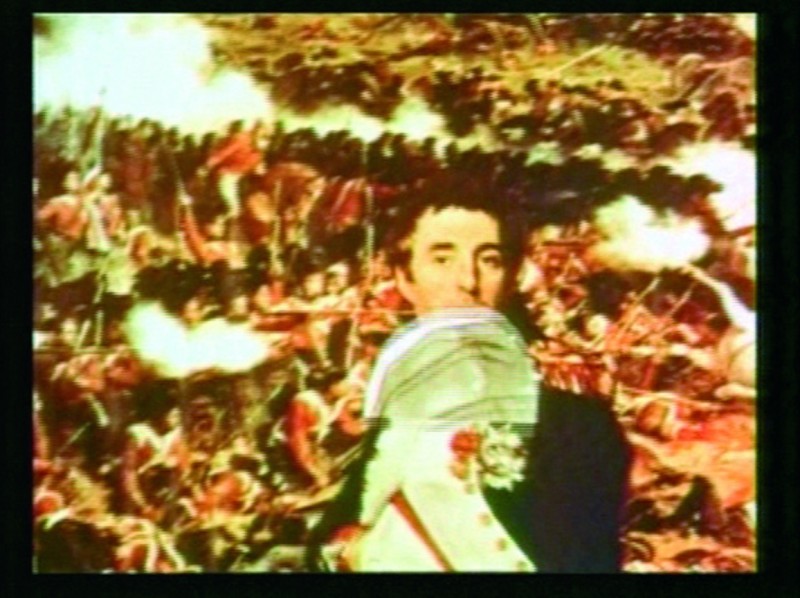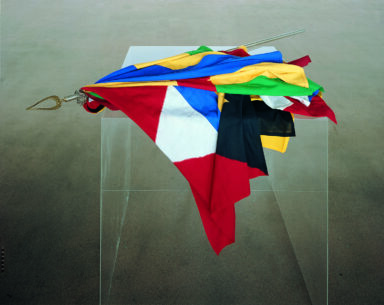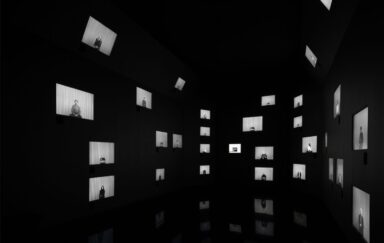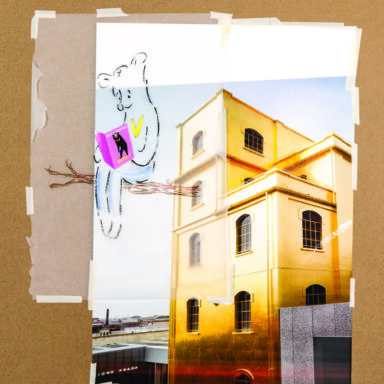Fondazione Prada, gives for free at the public the occasion to see some of the films presented during the experimental film festival that took place in Turin in 1967 that was devoted to the group of young filmmakers known under the acronym NACG (New American Cinema Group). This festival was conceived by Jonas Mekas and promoted by the Unione Culturale di Torino, that was directed by Edoardo Fadini. Major international cultural personalities were involved in the project, such as Roland Barthes or Carmelo Bene and the screenings of the 63 films were accompanied by talks held by the same Mekas and Fernanda Pivano.
This time is Germano Celant, the curator of the retrospective “The New American Cinema Torino 1967” that bring us back in Turin that in turn showed the experimental films made by the collective NACG in the early ’60. Those films were characterized by an anti-narrative approach and an experimental style, subverting the traditional cinematographic codes and embrace the literary, theatre and art movements of the counterculture (from the Beat Generation to the Living Theatre, from the Fluxus experience to Andy Warhol’s film experimentations).
Thanks to Fondazione Prada, that digitized more than 30 films that were only available in the old analog format of 16 or 35mm, the spectator has the unique opportunity to rediscover a visual and conceptual heritage that had revolutionized the independent cinema internationally.
A new volume would be also released, pubblished by Fondazione Prada, witch collects partly never before released texts, among which are the transcripts of several panels between Mekas and the audiences attending the screenings in 1967.
More info at fondazioneprada.org
Fondazione Prada will present the experimental film festival “The New American Cinema Torino 1967” from 1 to 30 April at its Milan venue. Curated by Germano Celant, the project recreates “New American Cinema Group Exposition”, a festival organized in Turin in 1967 and devoted to the group of young filmmakers known under the acronym NACG (New American Cinema Group).
The Turinese festival was conceived by Jonas Mekas, a theorist and supporter since 1955 of an artistic notion of cinema, as wells the creator of “rough, unpolished, but alive” films.
The screenings were promoted by the Unione Culturale di Torino, directed by critic Edoardo Fadini, who greatly contributed to the artistic scene in Turin at the time by involving major cultural personalities such as Roland Barthes, Julian Beck, Carmelo Bene, Luciano Berio, Judith Malina and Edoardo Sanguineti in its initiatives. From 13 to 21 May 1967, the screenings of 63 films, grouped in 13 programs, were accompanied by talks coordinated by figures such as Mekas and Fernanda Pivano. The Italian translator and scholar, deeply involved in the circulation of American underground culture, described this experience as the “the most cutting-edge event” of those years.
Officially born in New York in 1960, the New American Cinema Group originally gathered 23 independent filmmakers, who produced low-budget short and full-length films featuring controversial and disruptive content. Charachterized by an anti-narrative approach and an experimental style, their films subverted traditional cinematographic codes by employing found footage or film manipulation. Throughout the 60’s, the most radical voices of the young American cinema of the time gathered around figures such as Stan Brakhage, Robert Breer, Bruce Conner, Jonas and Adolfas Mekas, Marie Menken and Stan VanDerBeek.
The New American Cinema developed in opposition to the widespread Hollywood standards and aligned with the literary, theatre and art movements of the counterculture: from the Beat Generation to the Living Theatre, from the Fluxus experience to Andy Warhol’s film experimentations. As stated by Mekas in his introduction to the festival, the main contribution of the New American Cinema “is that its only area of action is the poetical side of self-expression”. Until 1960 cinema had been considered “only a secondary form of art (as it could only tell stories). Today, it allows filmmakers to fully express themselves in complete freedom”. This form of avant-garde invented “a new poetical vocabulary for cinema; it developed its synthax and language”.
After 50 years, Fondazione Prada will screen almost all the films presented in Turin in 1967. After a period of research conducted in collaboration with some of the most important independent film distributors, the Fondazione has contributed to the digitalization of more than 30 films, only available in 16 or 35 mm until today, thus allowing these rare films a wider circulation.
Whereas in 1967 Mekas described this festival as a “seminar for the eye”, thanks to which the public changed “its vision in order to learn how to SEE, to really appreciate this kind of cinema”, today “The New American Cinema Torino 1967” represents a unique opportunity to rediscover a visual and conceptual heritage that has revolutionized independent cinema internationally. The festival will be accompanied by a new volume in the Quaderno series, published by Fondazione Prada, which collects partly never before released texts, among which are the transcripts of several panels between Mekas and the audiences attending the screenings in 1967. The study and research of the historical materials have been carried out in collaboration with the archive of the Unione Culturale di Torino.
The screenings will take place at Fondazione Prada’s Cinema. Entrance is free. Seats are allocated on a first-come, first-served basis. The screenings calendar will replicate the programs included in the original festival. Like in 1967, the opening film will be “The Brig” (1964) by Jonas Mekas, defined by critics as a “raw slice of New American Cinema filmed in an off-Broadway stage with brutish authenticity”.
During the weekends, the screenings will be accompanied by a panel discussion about the reception of New American Cinema in Italy, led by Germano Celant with Adriano Aprà, Tonino De Bernardi, Pia De Silvestris Vergine and Ugo Nespolo (Saturday 1 April), followed by talks and conversations with some of the protagonists of this movement, such as Pola Chapelle (Friday 7 April), Ira Schneider (Friday 21 April) and Peter Kubelka (Friday 28 April). The complete screenings calendar will be available on Fondazione Prada’s website (fondazioneprada.org).



